On safari in Madikwe Game Reserve
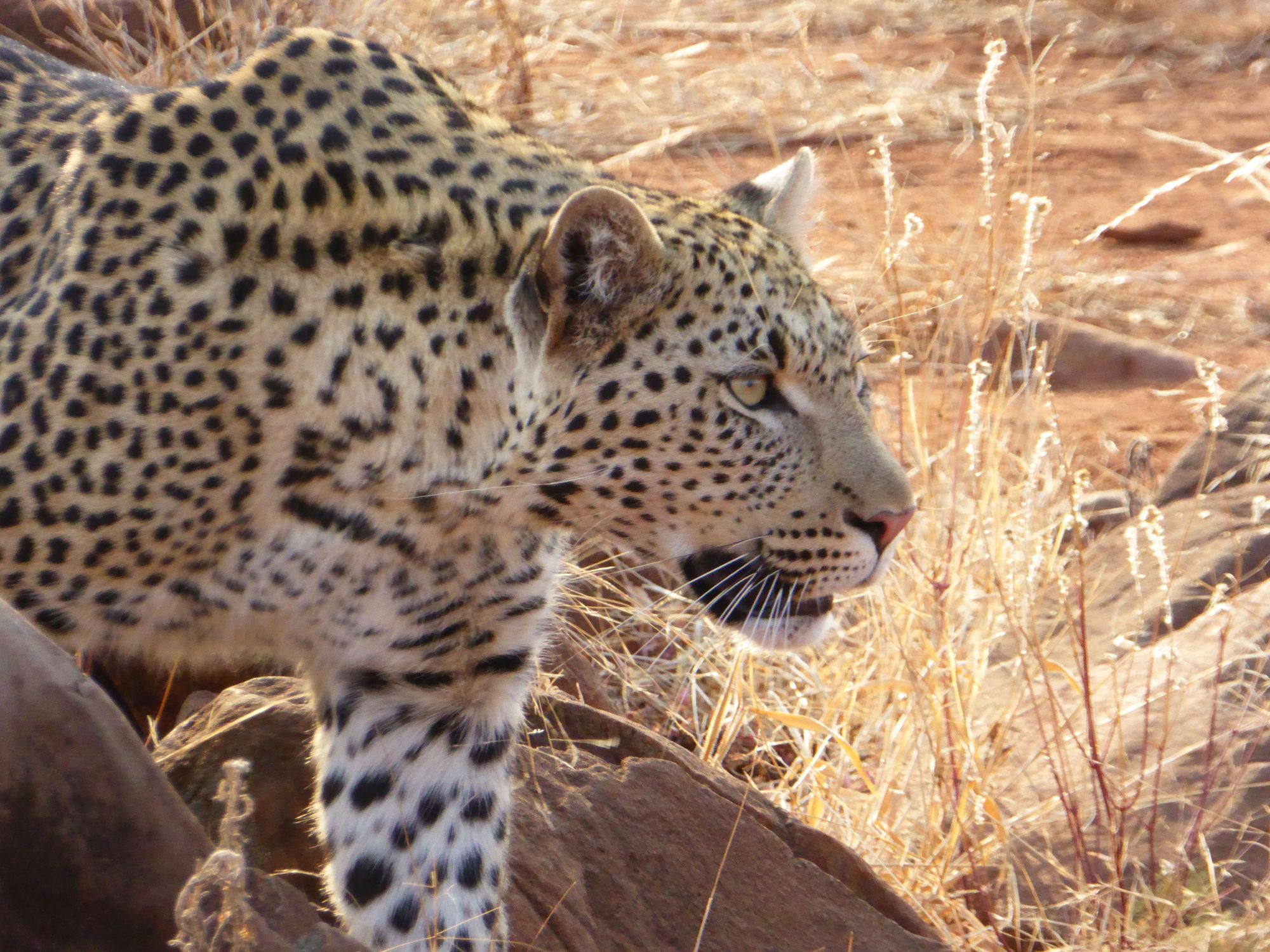
"I'm sure she's there somewhere," said Kaizer ruefully as the jeep bounced down the dusty road, heading south away from the river. "I think maybe we'll see her later."
We'd spent half an hour trundling up and down the Madikwe River, close to our lodge, in a fruitless search for a leopard that had been spotted the night before. Leopards are usually shy and solitary creatures, steering clear of human settlements, but this was a youngster, just two years old. The park guides had named her Dineo, meaning 'gift', since she had gifted them frequent sightings to wow their guests. But it seemed we were out of luck today.
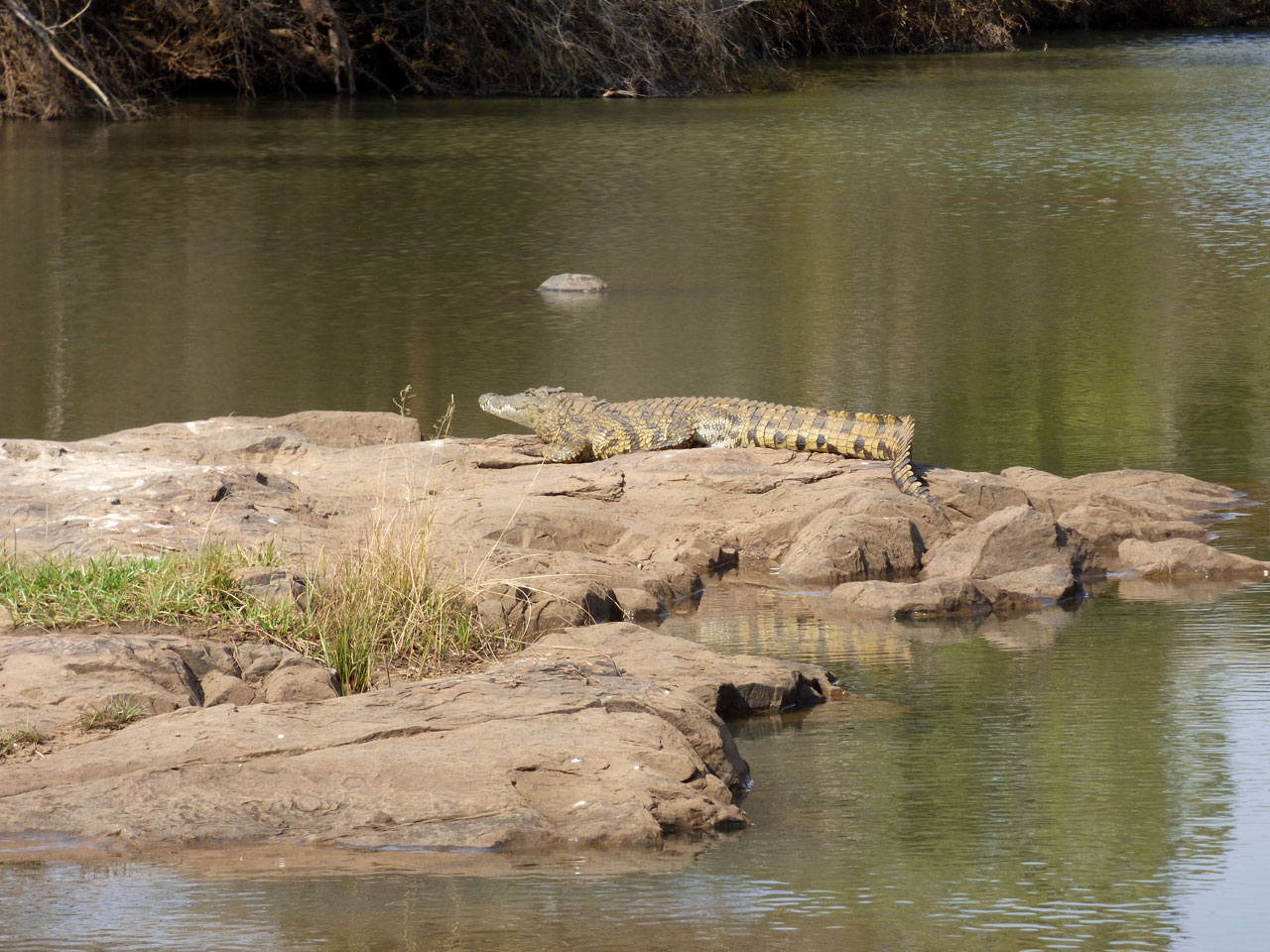
Nkwe
Kaizer seemed preoccupied with his failure to find the leopard as we headed deeper into the bush. There is a distinctive smell to the African bush: fragrant, warm, herby, but also earthy and tangy with the smell of dung. The terrain was covered in vicious-looking thorn trees that pinged off the jeep, and dead dried-out bushes that splintered as we powered through them. The sun was now up above the horizon and the sky was a washed-out blue, the warmth of the new spring day colouring the landscape.
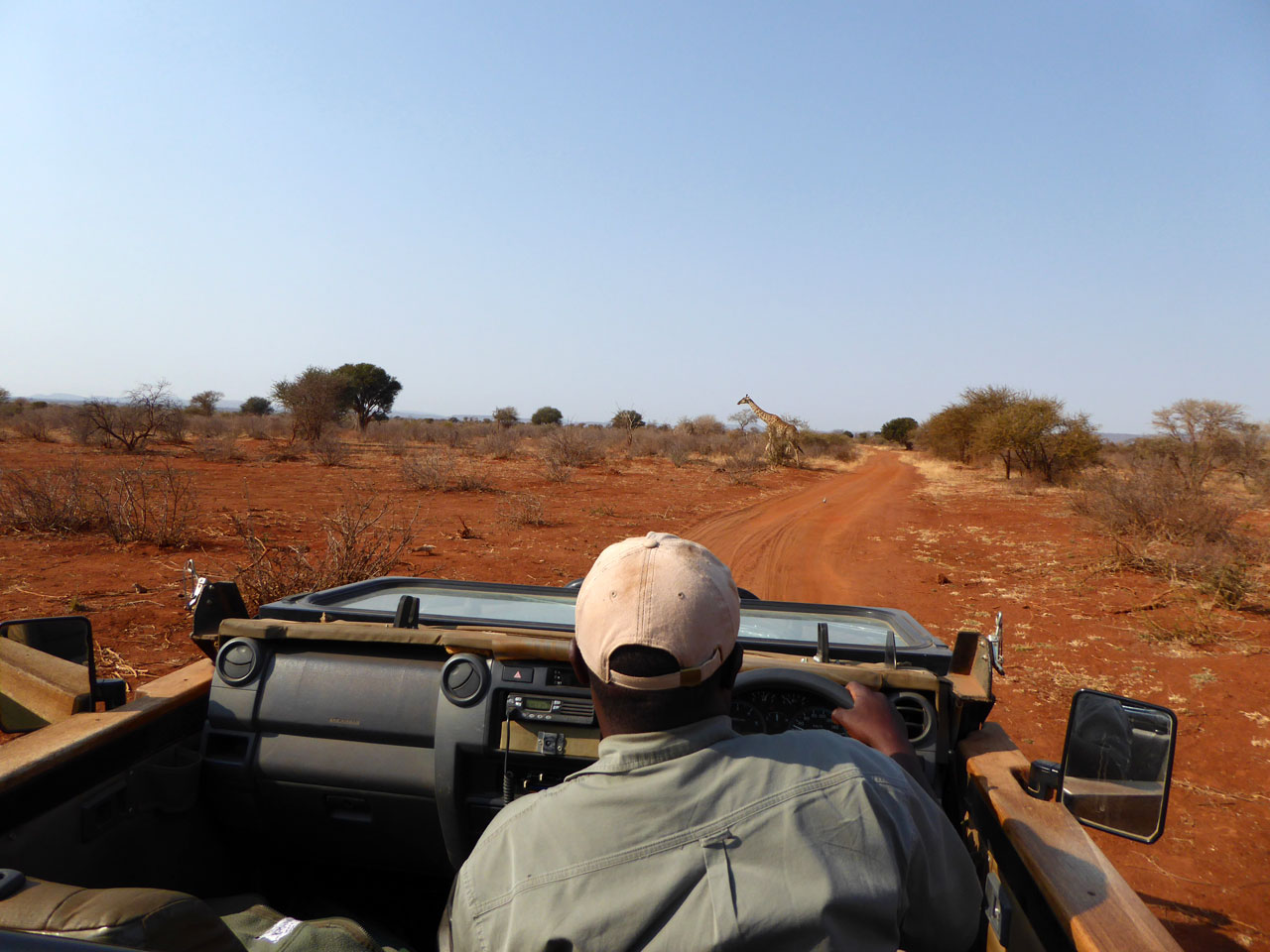
Suddenly Kaizer's radio squawked into life.
"We've found the nkwe, she's by the lodge."
The park rangers always used the local Setswana names for the animals over the radio, to keep the tourists guessing. But this time we had a fairly good inkling what they'd found, thanks to the huge grin that lit up Kaizer's face.
Our excitable guide swung the jeep round in a manic three point turn, then gunned the engine and launched us back down the rusty red dirt track towards the river. Suddenly we were on a rollercoaster hurtling across the bush, bouncing over bumps in the road and flying round corners, scattering clouds of startled guinea fowl in our wake.
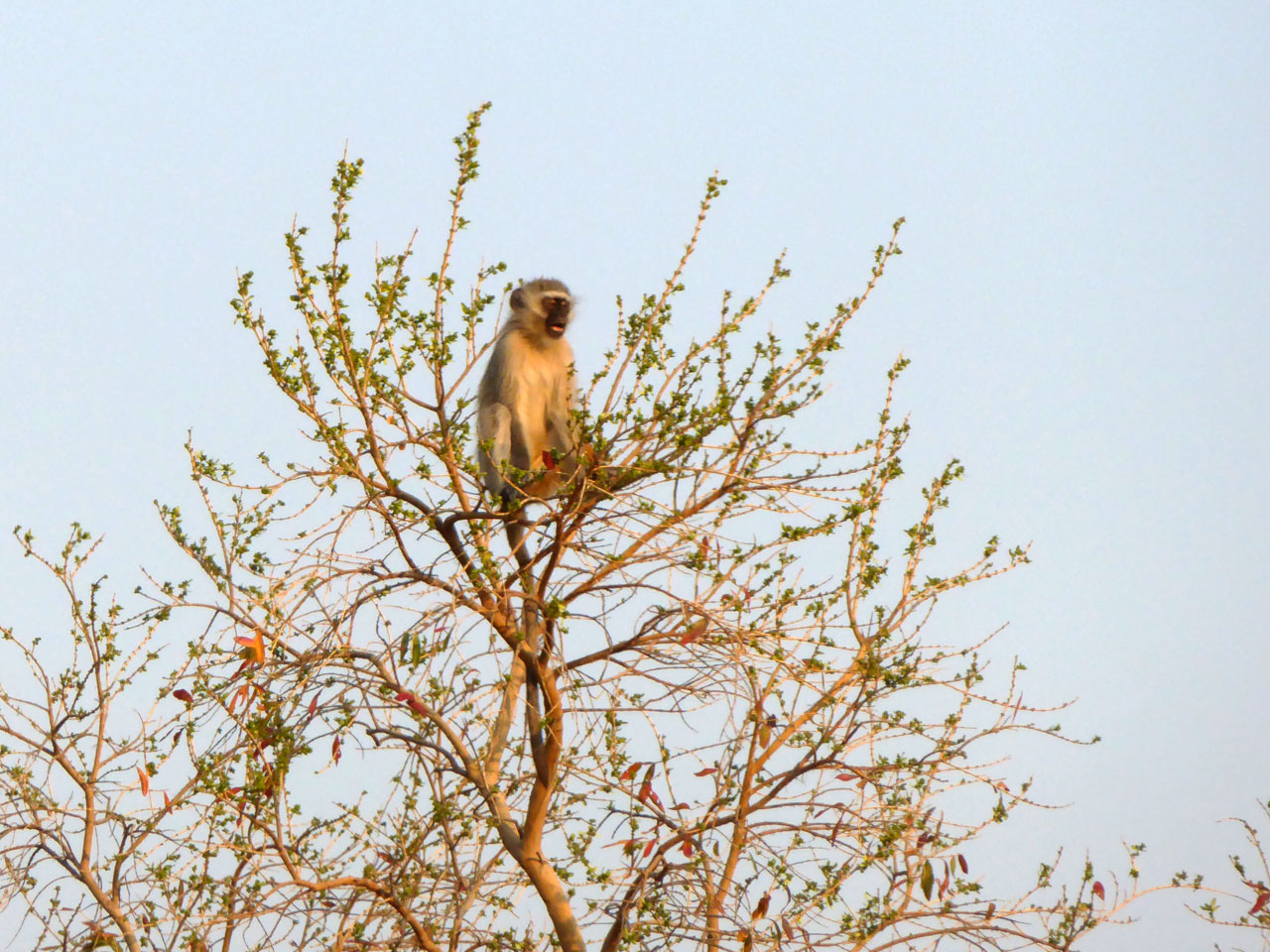
We pulled up outside the lodge to a cacophony of vervet monkeys, bellowing their alarm calls from the treetops. The leopard was nowhere to be seen, but the frantic hooting of the monkeys meant she had to be close. Kaizer leapt out of the jeep, told us to stay put and disappeared into the thick vegetation by the river bank. Was he insane? Were we safe here, sat in a jeep in plain view, with a deadly big cat stalking through the undergrowth?
We sat there as the minutes passed, nervously joking about what grisly fate might have befallen Kaiser. We strained our eyes for some sign of movement down by the river, but there was nothing. One of our fellow passengers in the back of the jeep glanced over his shoulder, and suddenly there she was, just metres from the jeep, walking casually along the road in the opposite direction. As the leopard slunk off along the dried out riverbed, Kaizer reappeared from the bush.
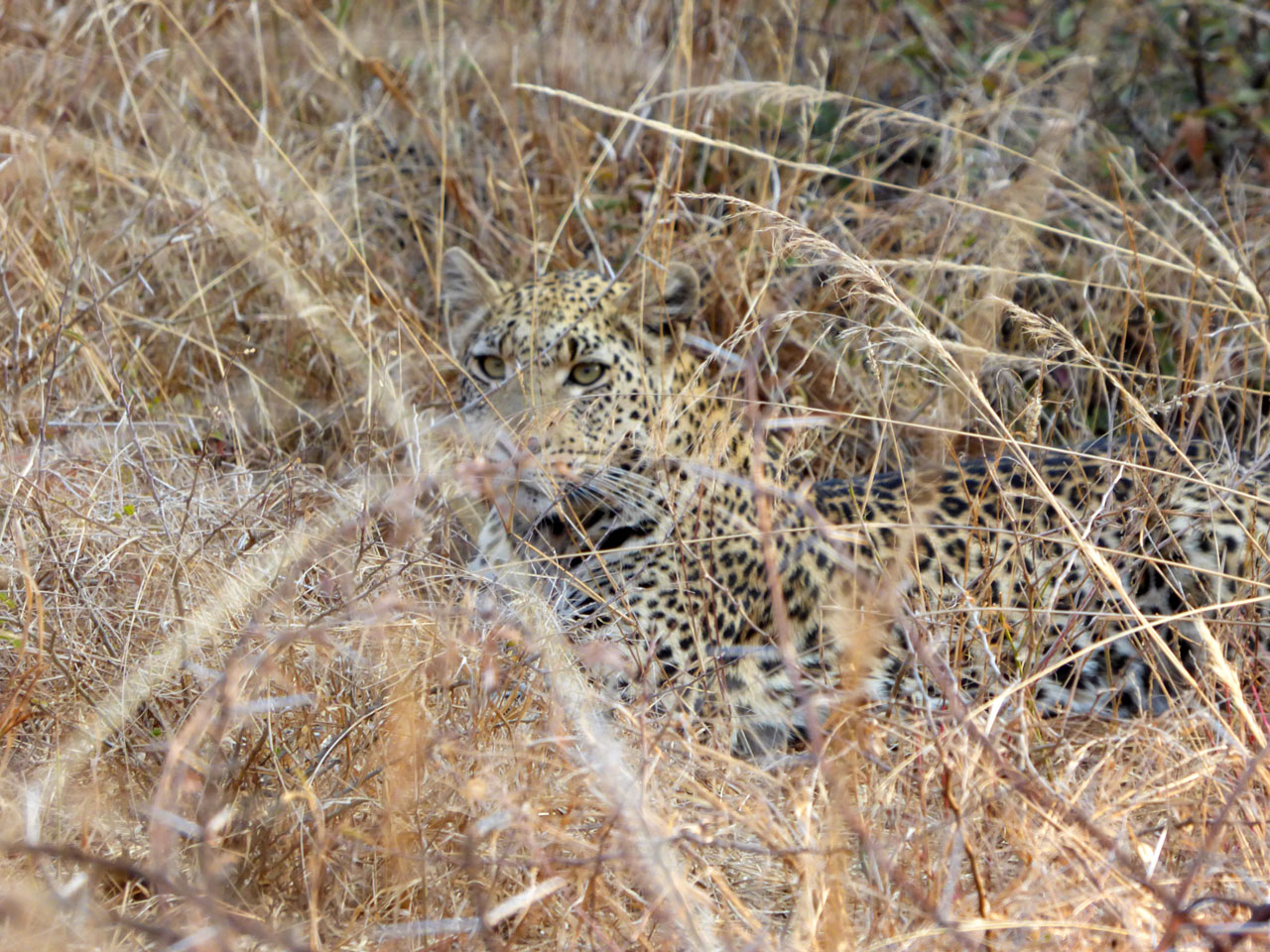
"She's over here!"
He raced back to the jeep and we motored off along the river, skirting the perimeter of the lodge, catching the occasional glimpse of Dineo's spotted coat through the long grass. The jeep came to a halt at the top of a grassy lane, and finally we got the perfect sighting we'd been waiting for. She emerged from the grass and walked out in front of us in full view, lithe and muscular, briefly fixing us with her piercing gaze.
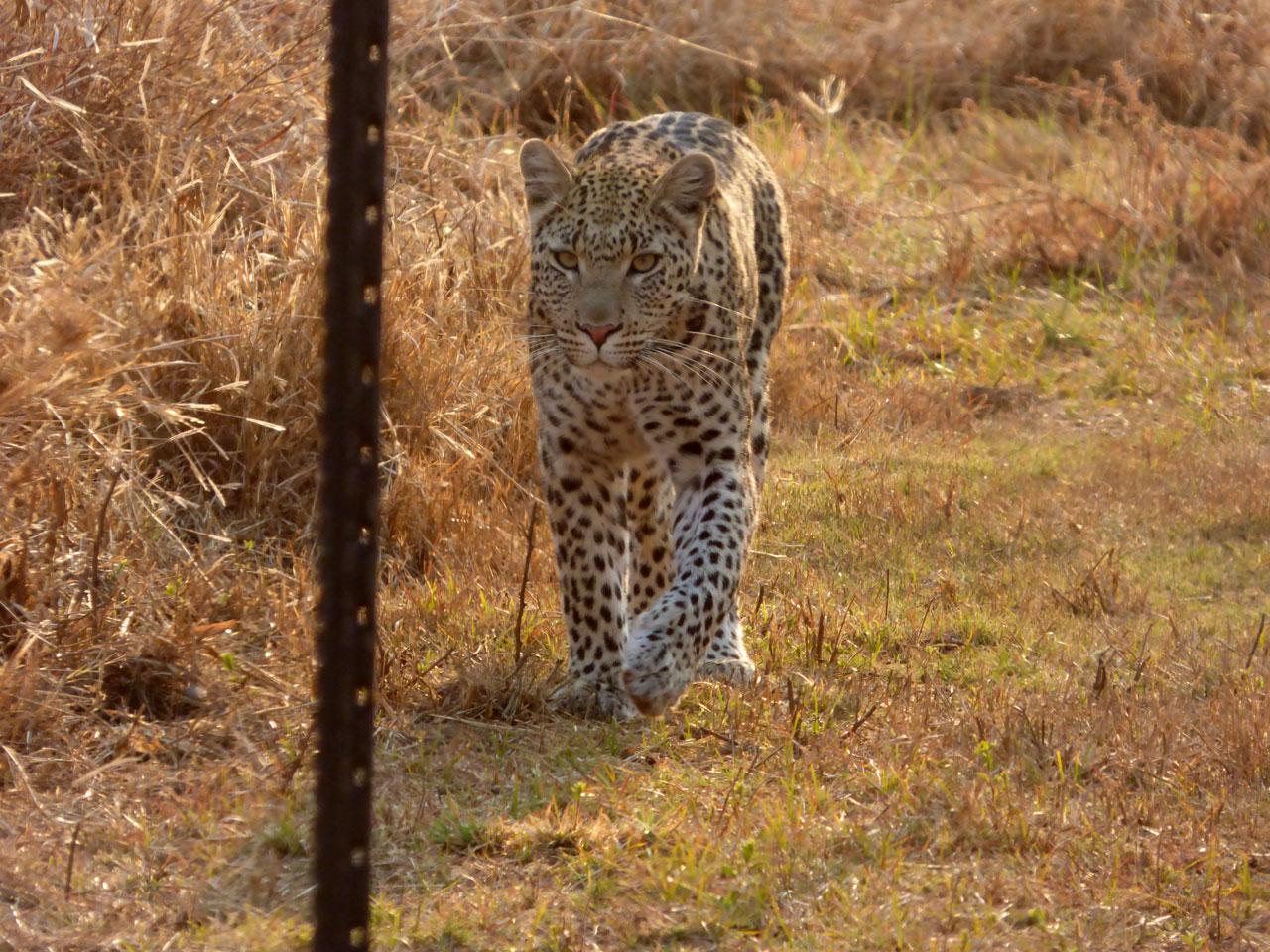
Tlou
During our four-night stay in Madikwe we saw an incredible amount of wildlife, sometimes without even leaving our room. From our porch overlooking the river we saw elephants bathing, giraffes munching on the treetops, bushbuck antelopes rooting around in the garden, and hornbills gobbling up insects.
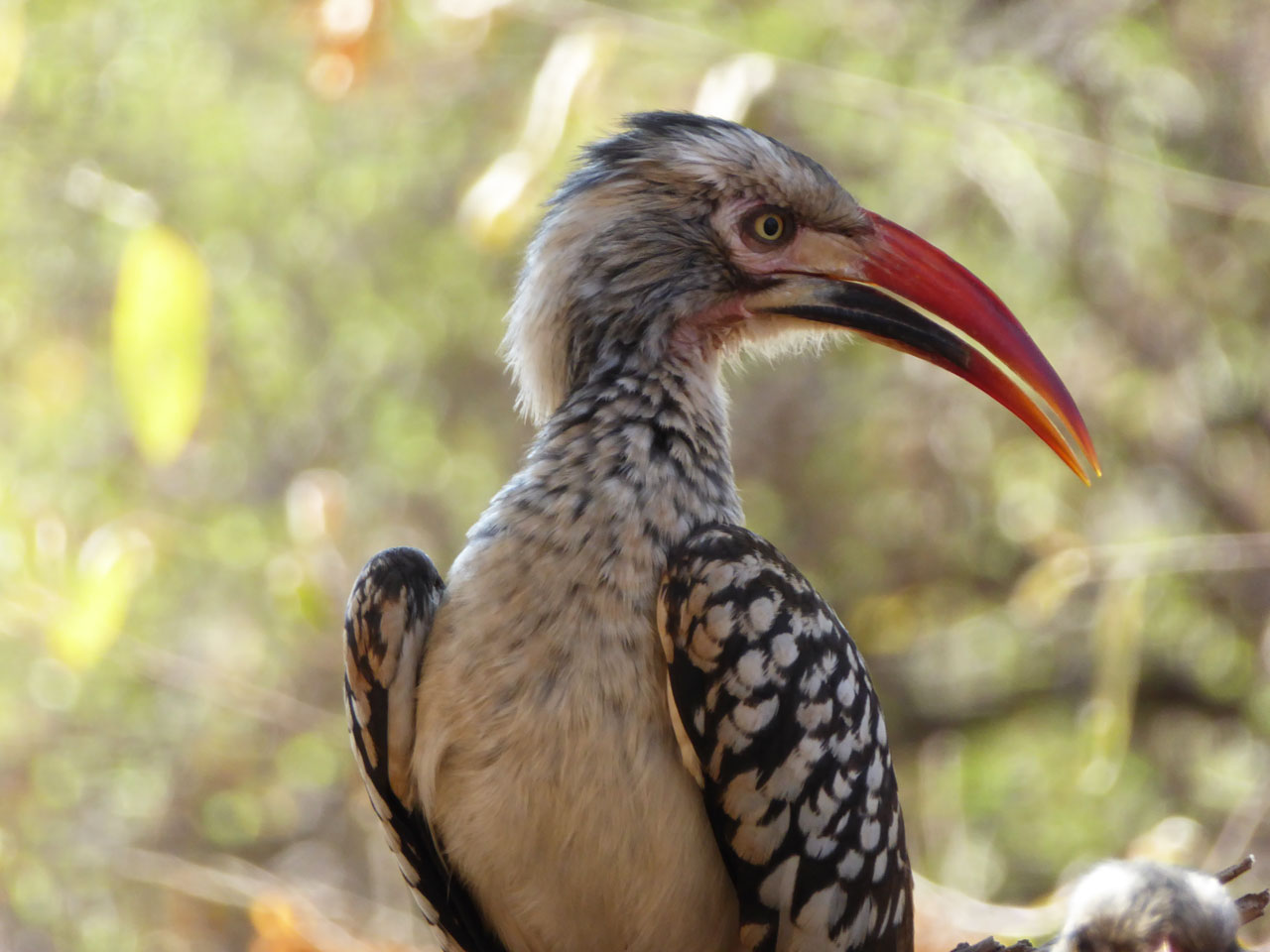
You'd be forgiven for thinking that this typically African landscape, teeming with life, has been here for a very long time, but 30 years ago this land was used for cattle farming. The poor soil meant that the farms struggled, and the South African government decided to turn the land into a game reserve in 1991, with the aim of reviving a historically poor area through tourism. A massive relocation of animal species known as Operation Phoenix reintroduced 28 species and thousands of animals to the park. Entire herds of elephants were moved here, and Madikwe now has the second largest elephant population in South Africa, second only to Kruger National Park.
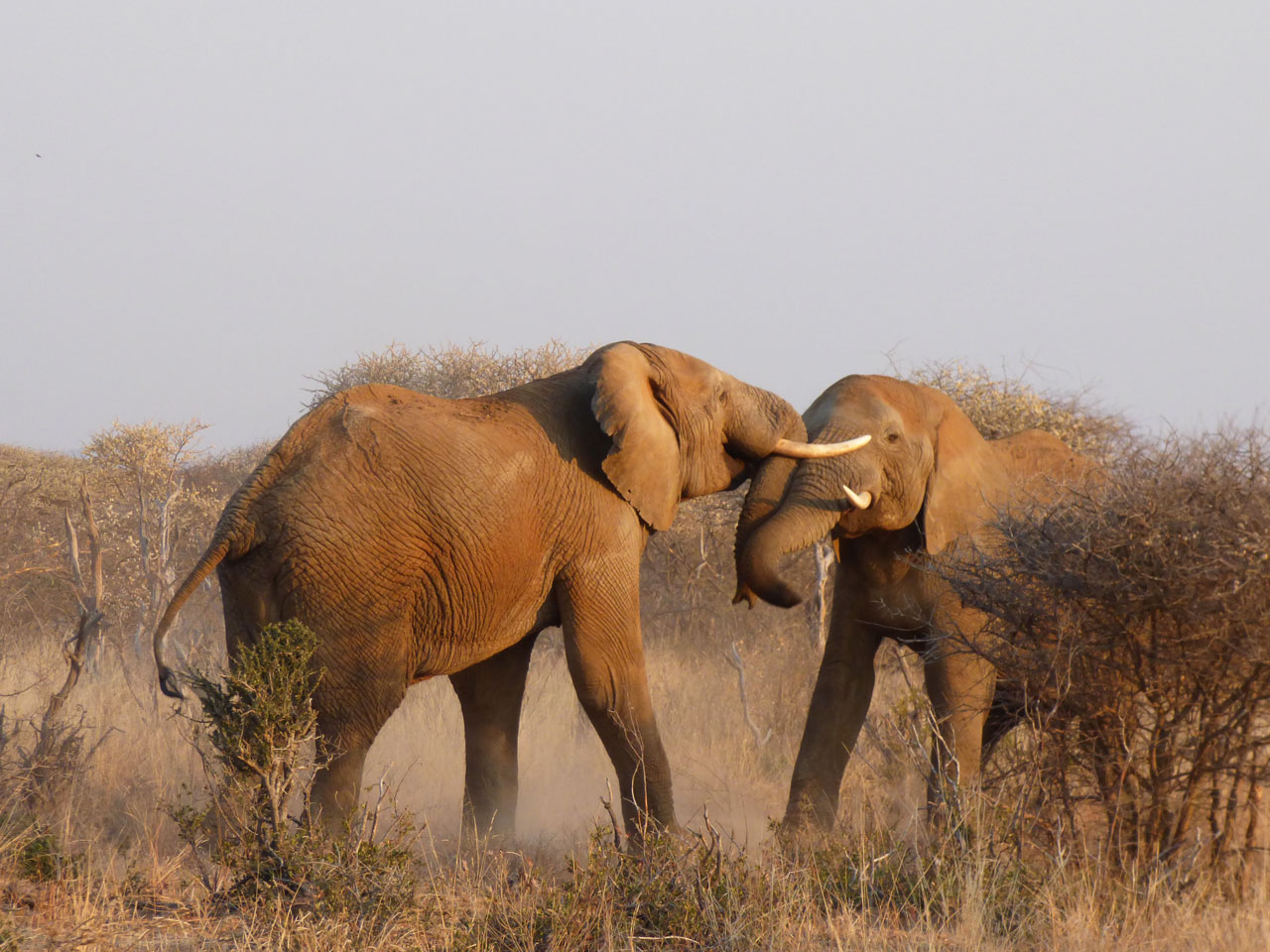
Tshukudu
The creation of Madikwe Game Reserve has been a huge success, but the park is not without its problems.
On our third day Kaizer took us south along the river past a primitive airstrip. We stopped for a few minutes to watch a group of hippos wallowing in the murky waters of the river, then carried on south in search of whatever Kaizer had in store for us today.
"Kaizer Kaizer, come in."
"Hey, this is Kaizer."
"Have you found those tshukudu yet?"
"Not yet. We saw some kubu, on the other side of the fence."
Clearly the kubu were hippos, but what were these mysterious tshukudu?
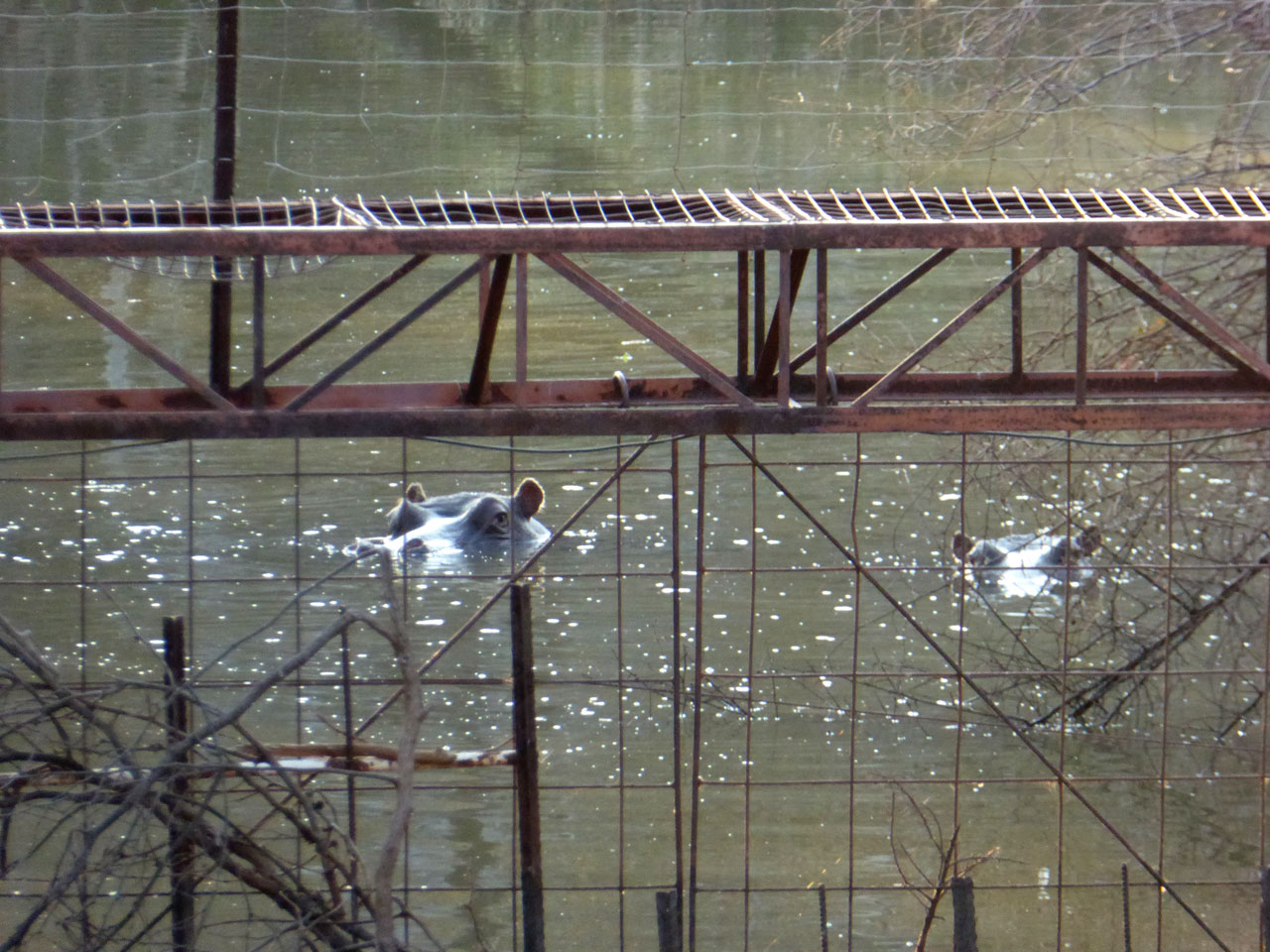
The jeep slowed down as we left the road and we started rolling through a swathe of long grass. We scanned our surroundings for movement, while Kaizer beamed his toothy grin once more. Clearly we were about to be dazzled again by his ability to track game using the subtlest of clues - the trampled vegetation by the roadside, the smell of fresh dung.
We emerged from the long grass into a small clearing and suddenly there they were: a group of nine tshukudu, white rhinos, who became skittish as they spotted us. It was bizarre seeing these huge, almost prehistoric-looking creatures galloping away from us like nervous horses. But there was a depressing explanation for the rhinos' anxiety.
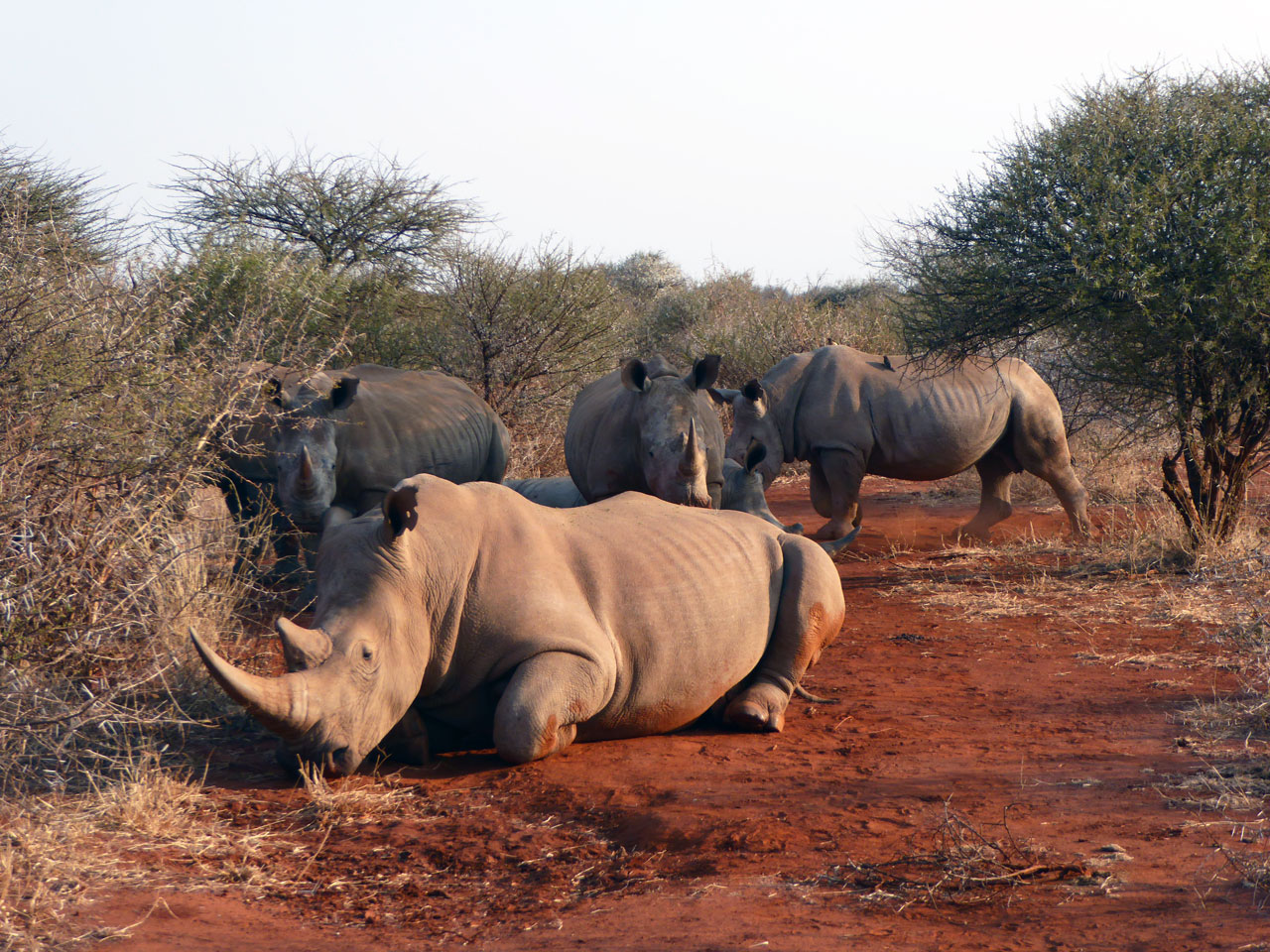
Like many reserves in South Africa, Madikwe has a problem with poaching. When we visited in September, the park had already lost 17 rhinos that year. The poachers kill the rhinos solely for their horns, which they saw off and illegally export to the Far East, mainly China and Vietnam, where the horns are ground into powder and used in quack medicines. It's a lucrative trade, with white rhino horn selling for up to US$3,000 a pound on the black market in South Africa, and the poachers are usually from poor local villages. Madikwe is patrolled by an anti-poaching unit, but with so much ground to cover it's incredibly difficult to keep the intruders out.
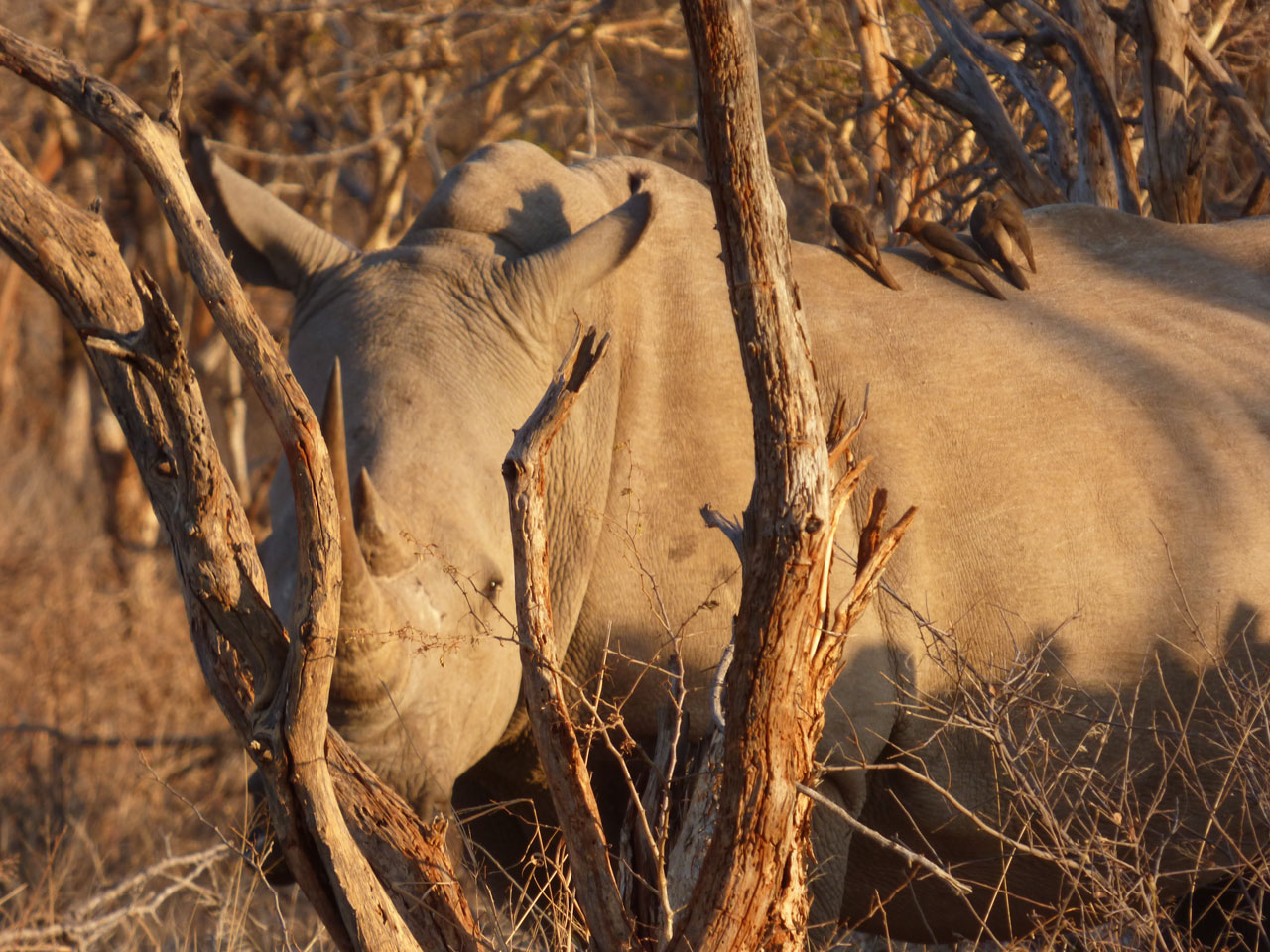
After a while the rhinos seemed to get used to our presence and settled down, presumably because we hadn't started shooting them. We sat in the jeep enthralled as we watched the group dynamics of this little herd playing out. An amorous bull was trying to woo one of the young females, and clumsily tried to mount her. She was having none of it, and fought him off with surprising violence, her horn gouging open a cut on his cheek.
It was only a scratch really, the real wound inflicted on his pride. As flies buzzed around the blood oozing from the rhino's cheek, a group of little red-billed oxpeckers landed on his back. The rhinos tolerate these birds hitching a ride because they perform a valuable service, ridding them of the pesky flies. We saw these birds often during our game drives, usually perched on a giraffe's neck or a rhino's back.
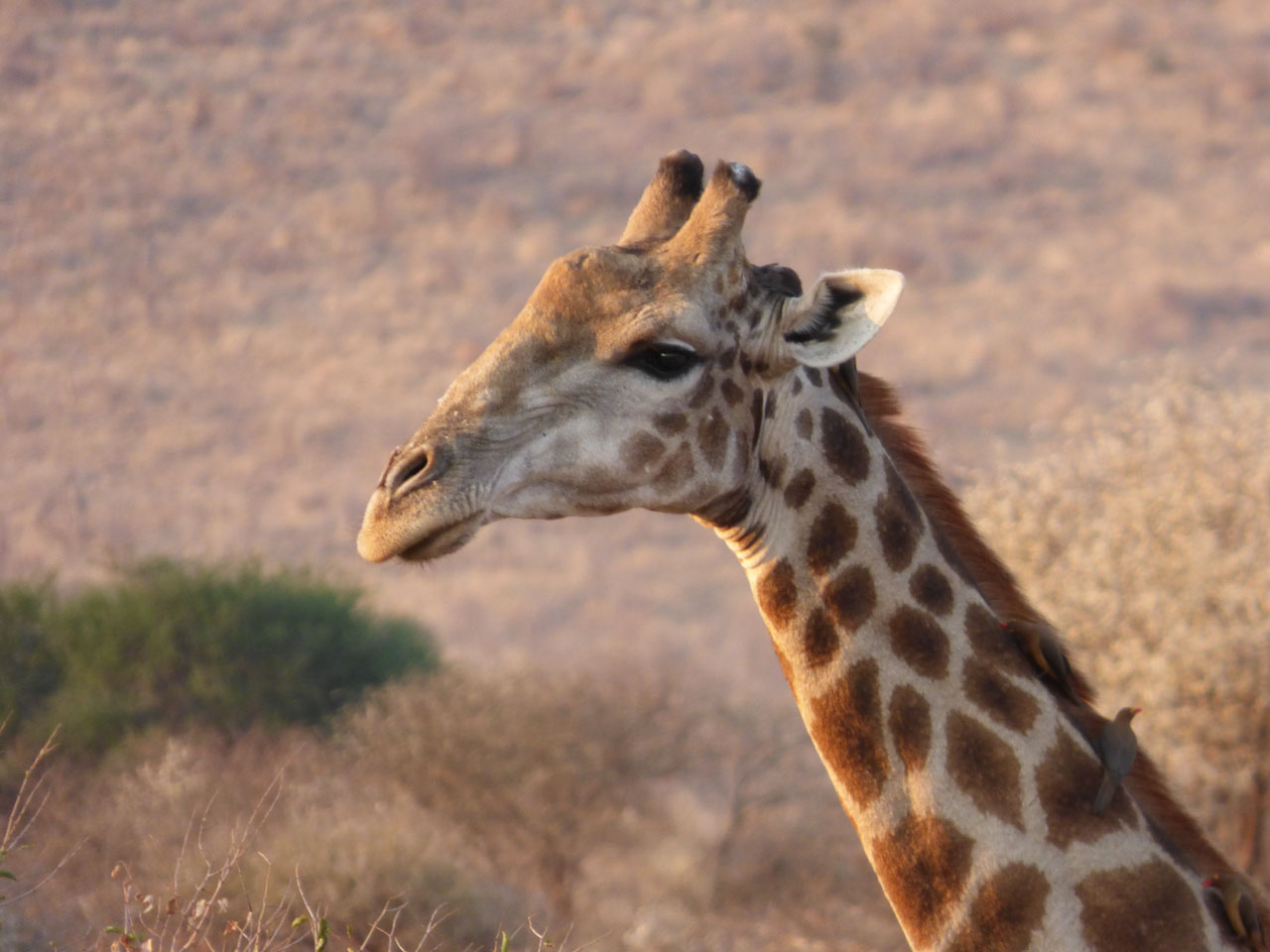
Kaizer explained a little about the bizarre mating rituals of the rhino. Male rhinos mark their territory by defecating in big circles around the periphery, warning other males to keep off their patch. When a female is ready to mate with a bull, she sends him a signal by defecating on his dung circle. We pondered this approach to seduction as we heading north past huge mounds of rhino poo, and as the landscape opened up in front of us we passed a herd of some 30 or 40 giraffes. At the edge of the river we saw zebras, impalas and wildebeest drinking in the early morning sun, nervously glancing around for signs of big cats on the prowl.
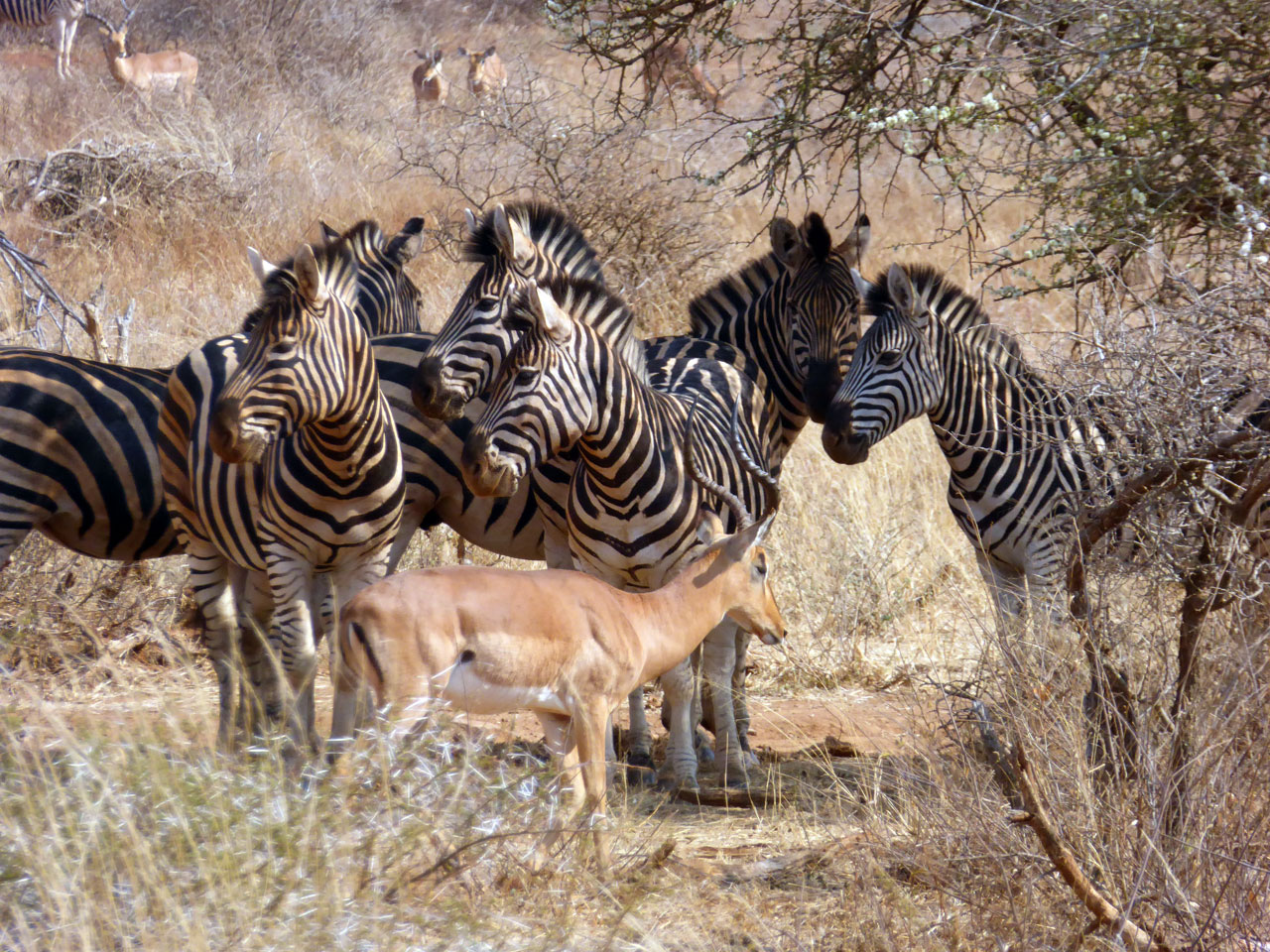
Lengau
By our final day, we had seen four of the 'Big Five' - leopards, lions, elephants and rhinos. The last beast on the list, the Cape buffalo, was perhaps the least exciting, but Kaizer was determined to make sure that we saw them all before we left. It's a common misconception that the Big Five are the five biggest animals in Africa, but in fact the phrase was coined by big game hunters, who considered the Big Five to be the most dangerous species to hunt on foot.
As the sun came up over a dusty corner of the park, we came upon a huge herd of buffalo moving through the trees. There were so many animals that we couldn't quite fathom how we'd failed to find them earlier in the week, but the park is so vast that it's surprisingly easy for animals to disappear.
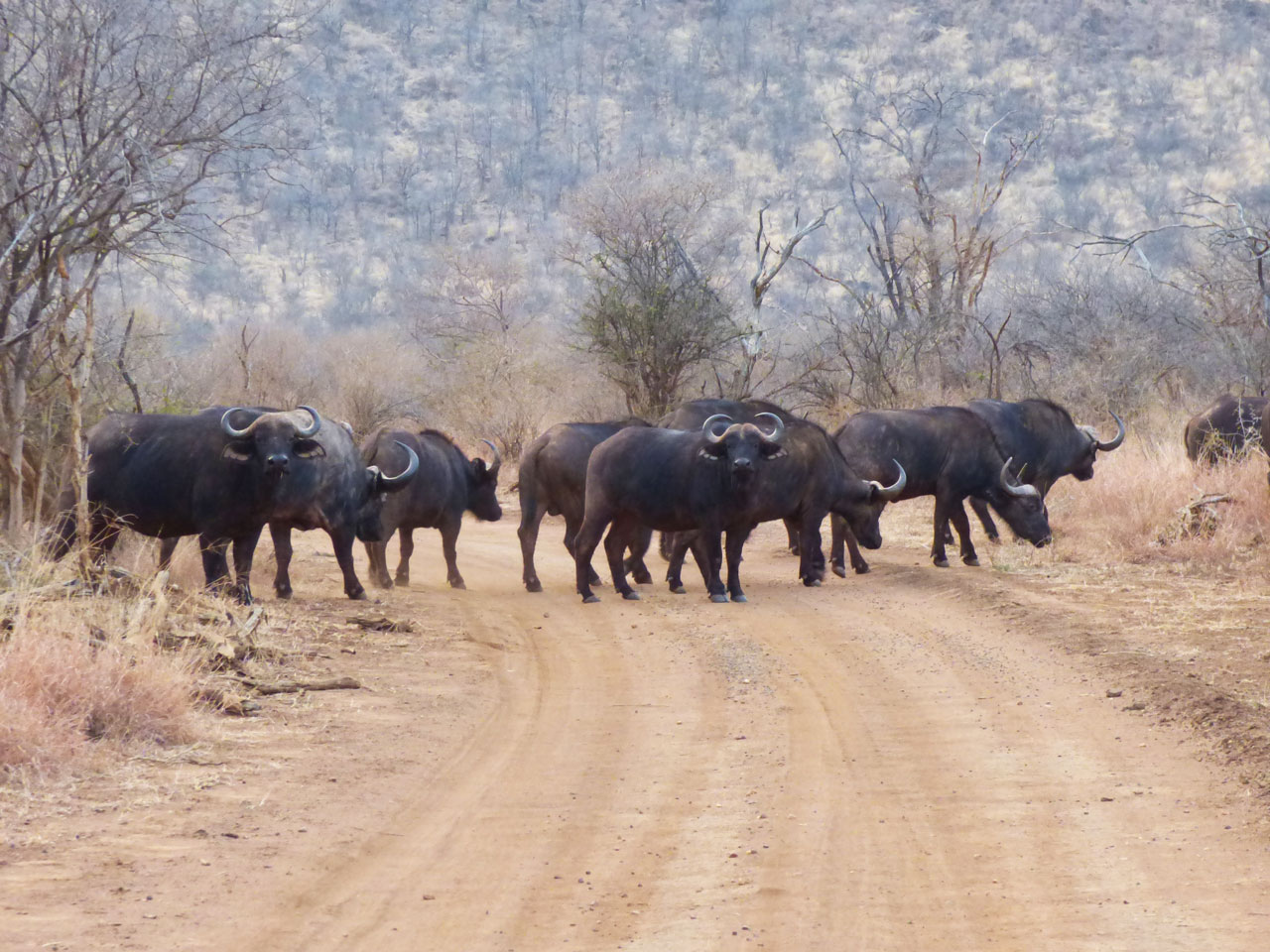
Later that morning we had another amazing big cat encounter, when we found two cheetahs resting near the perimeter fence. There are only four cheetahs in the entire 750-square-kilometre park, all of them male. We were surprised to learn that cheetahs are actually quite vulnerable to other predators; although they are famously fast on their feet, these beautiful cats are not very strong, and they are often killed by the lions, hyenas and leopards with whom they compete for food.
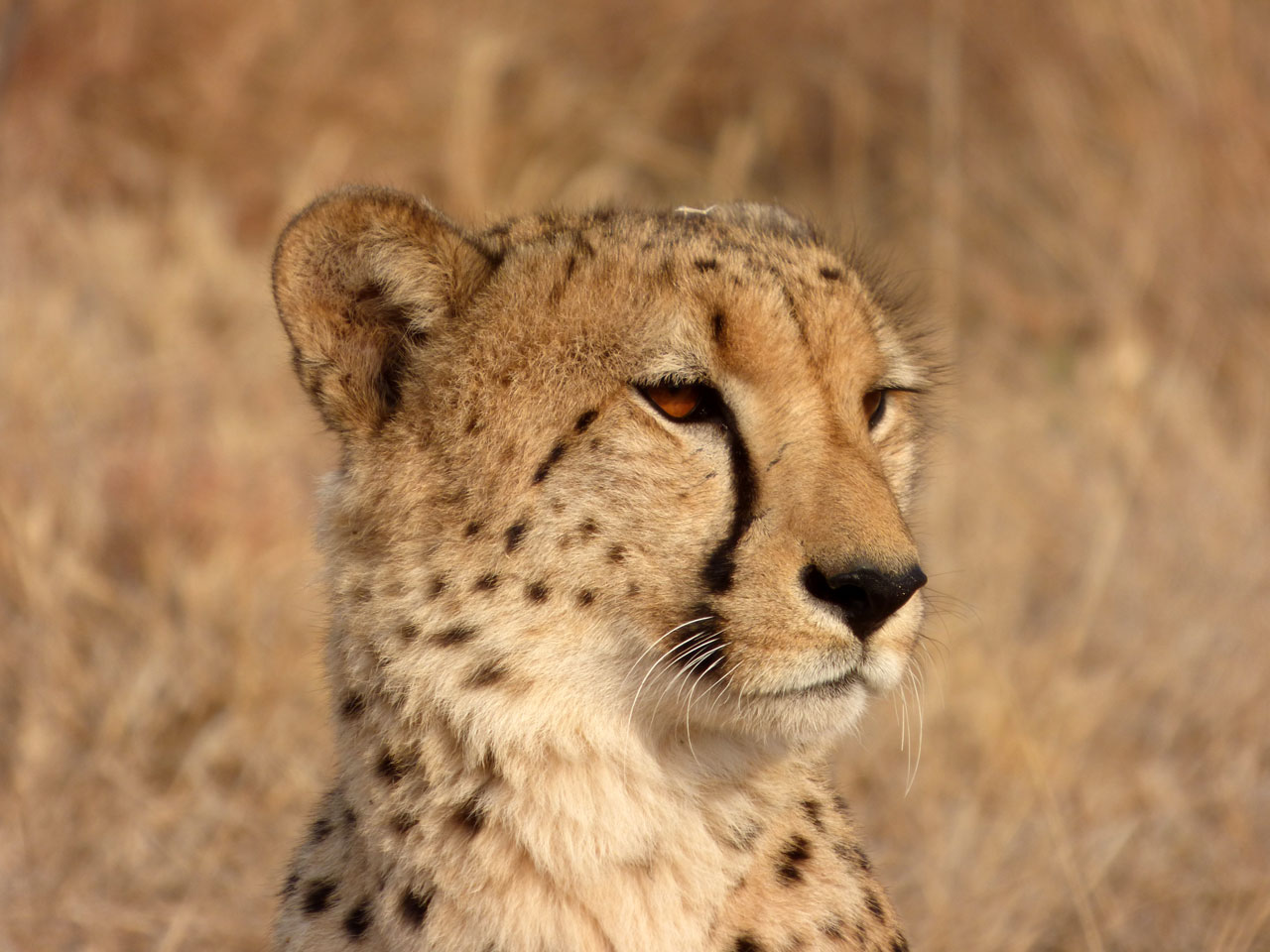
The two males were laid in the shade, one dozing while the other kept a lookout. Every so often the two swapped roles, with one of them always on sentry duty. Kaizer told us that there was previously a female living in the park, but she hadn't been seen for a very long time, so they assumed she had been killed by another predator. It was a reminder that poachers aren't the only obstacle to re-establishing wildlife populations; nature plays its part too.
Tau
That evening we went out in search of kubu, hoping for a closer look at the hippos that we'd seen earlier in the week. One of the great things about being on safari is the unpredictability; you can never guarantee what you're going to see on each drive, or indeed whether you'll see anything much at all. As we searched fruitlessly for the hippos and the daylight began to fade, it seemed like our final game drive would be something of an anticlimax.
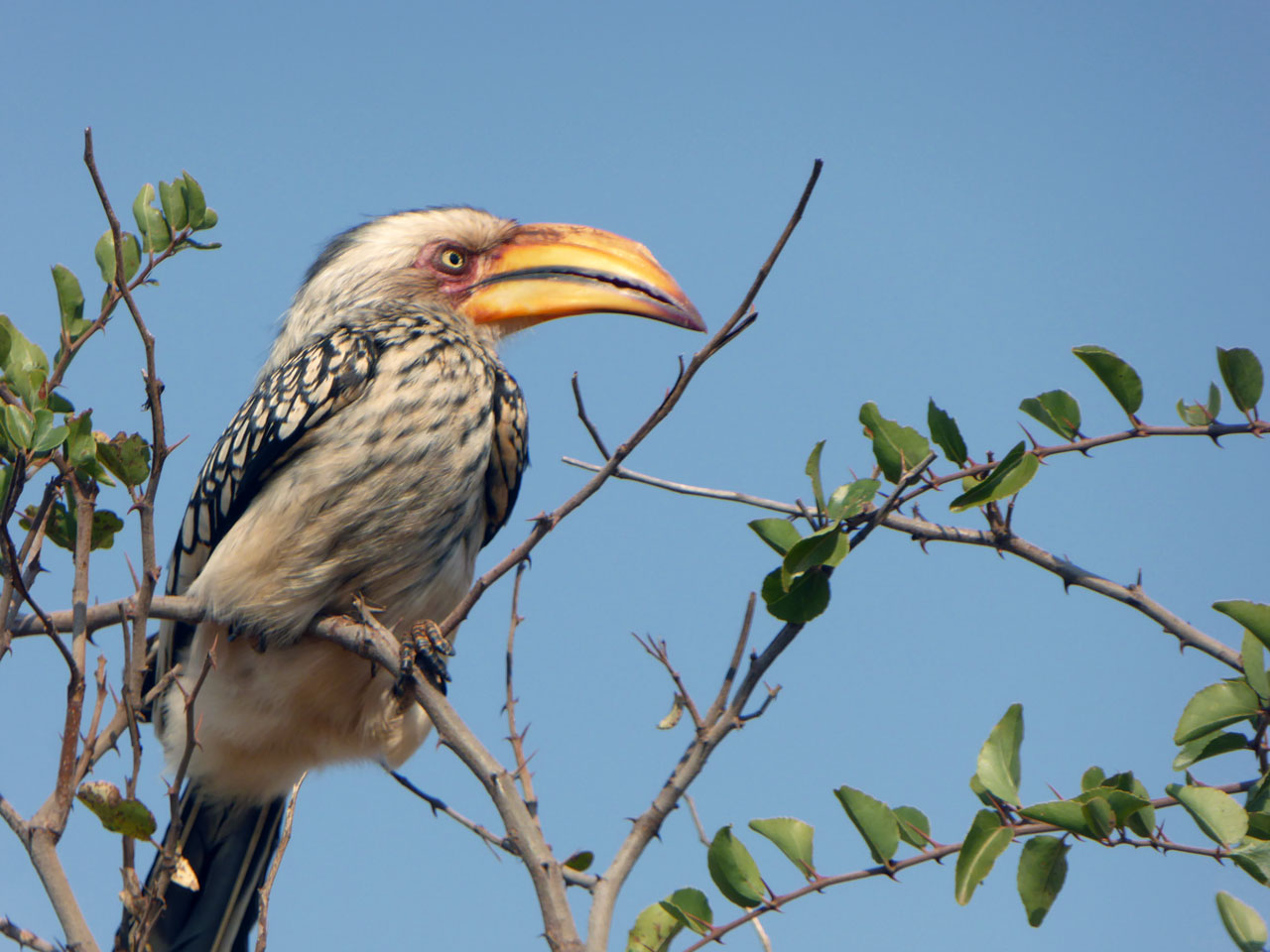
We could hardly complain, having seen so much during our short time in the bush, but it was odd to see Kaizer now stopping the jeep to point out tiny birds and telling us the names of the different trees. All week he had been tearing around the park in search of the Big Five, dismissing zebras and giraffes and wildebeest as 'general game', barely worth stopping for.
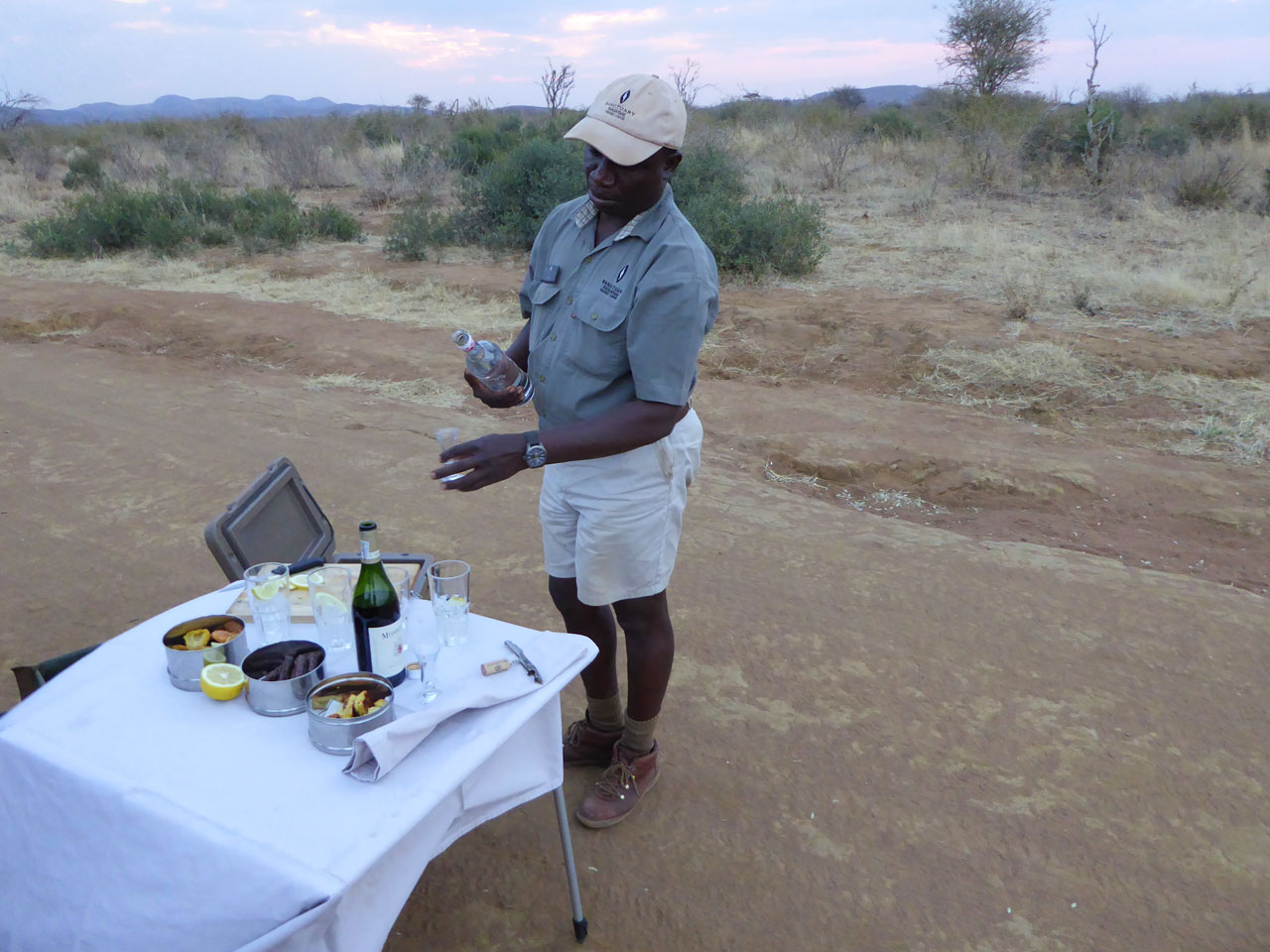
As the sun sunk towards the horizon we pulled off the road at a clearing, as we did at the end of every day, and Kaizer unfolded his little plastic table to prepare our sundowners. Just as he was beginning to measure out the gin and tonic the radio squawked with an excited voice.
"Kaizer, Kaizer, are you there? We've got that group of tau, two males and three females."
By now we had learnt most of the Setswana names for the animals, so Kaizer's next question came as no surprise.
"Do you want a gin and tonic, or do you want to see the lions?"
Although we'd had a couple of lion sightings, we were yet to see a male, so the gin and tonic could wait. We leapt back into the jeep for one last Kaizer special, tearing across the veld in the half-light.
By the time we arrived at the spot it was dark, and Kaizer illuminated the scene with a red light so as not to disturb the animals. As the jeep came to a stop, a pride of lions came striding through the long grass towards us, out on a hunting expedition. Two males with their incredible manes and huge, fearsome-looking heads passed either side of the jeep, just feet from where we were sat.
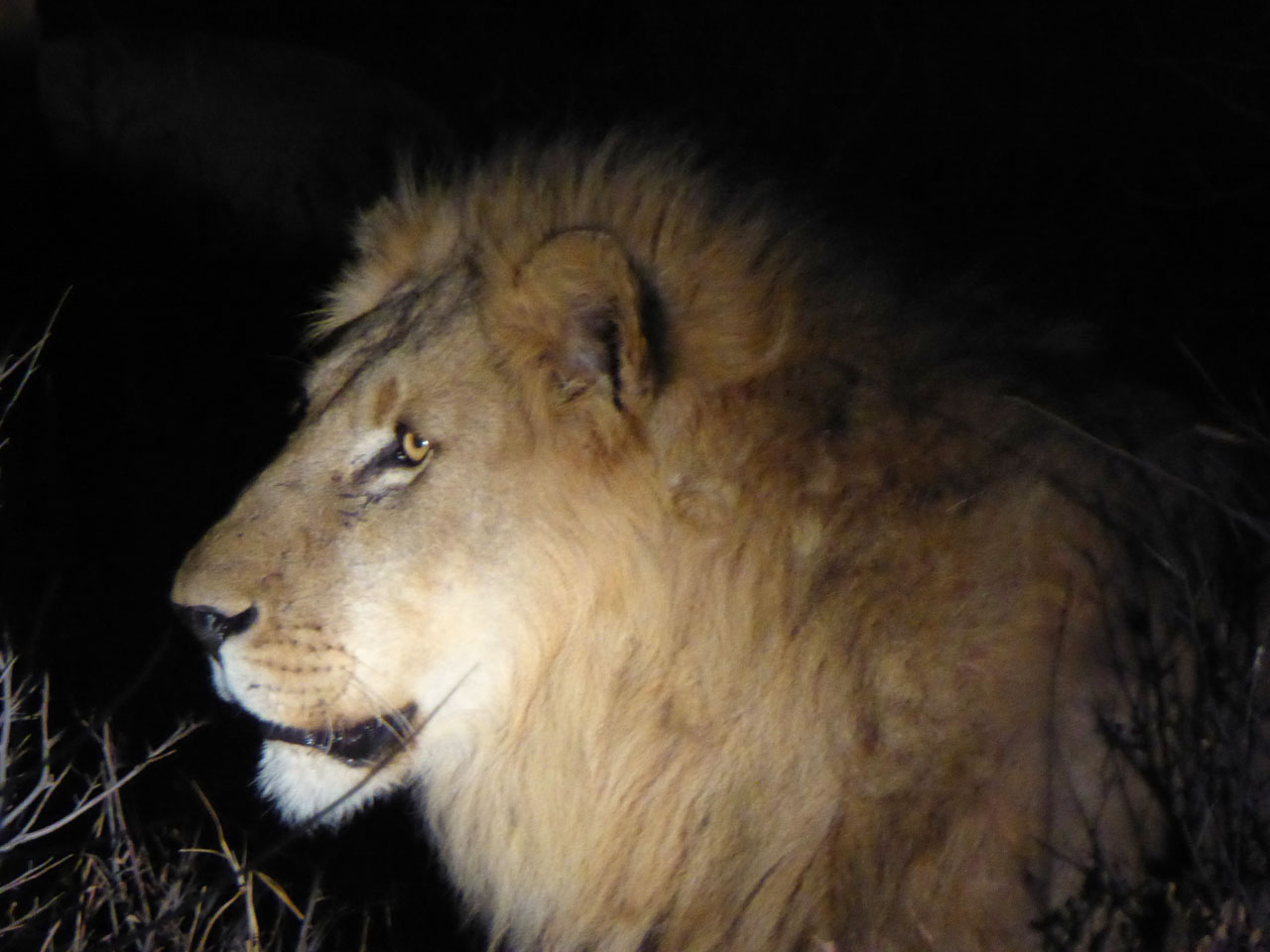
It was almost unbelievable that this was a safe and sensible thing to do, sat here in an open-topped jeep as five enormous, hungry lions came slinking past. We sat transfixed as the lions, completely uninterested in us, went stalking off into the undergrowth in search of their prey. It was an amazing ending to our trip. Well, not quite the end.
"Now you want a gin and tonic?"

